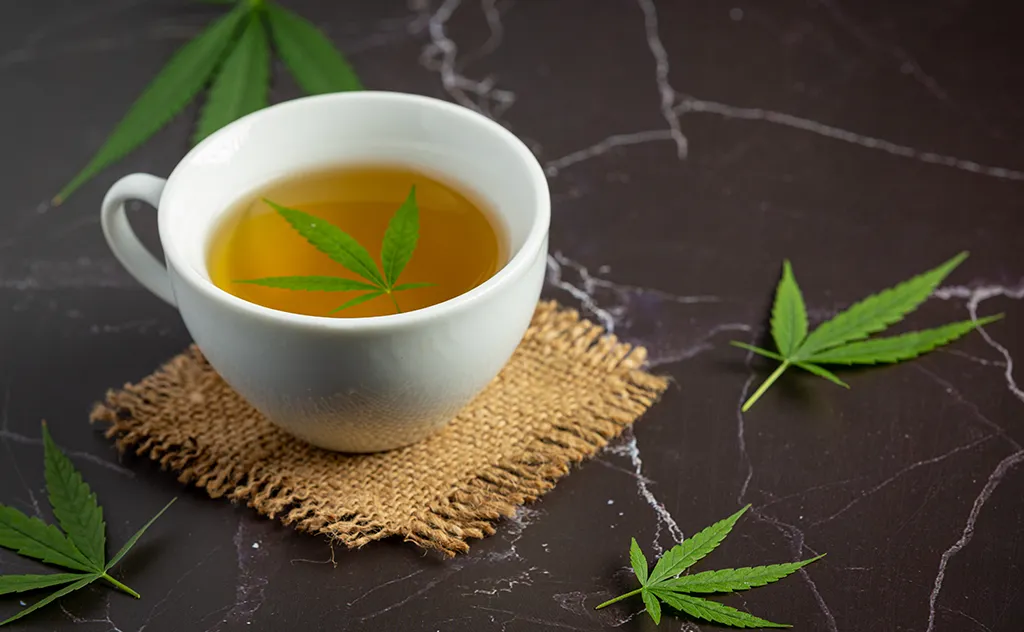Herbal tea is a moment of relaxation, a ritual, a moment of slowness that man needs in a world in constant motion. We are asked to go, go and go again every day. The ritual stops us, brings awareness to the present.
Even more relaxing is hemp herbal tea.
This drink, prepared using parts of the cannabis plant, has attracted increasing interest for its alleged therapeutic benefits and its potential to promote general well-being.
The benefits of hemp herbal tea are diverse and range from stress and anxiety management to chronic pain reduction. Hemp is known for its anti-inflammatory and analgesic properties, which can offer relief to those suffering from various medical conditions.
But is everything really sunshine and rainbows?
As with any natural remedy, there may be contraindications and precautions to consider, especially for certain categories of people. We will also explore these aspects in order to provide a complete picture and help you make informed decisions about its inclusion in your wellness routine.
Hemp herbal tea is gaining increasing popularity among those seeking a moment to themselves that can also be an opportunity to take care of their bodies.
What is hemp herbal tea used for?
Hemp herbal tea is used for a number of beneficial health and wellness purposes, as mentioned earlier.
Here are some of the main reasons why people choose to consume this drink:
- Stress and anxiety management: most people choose hemp herbal tea for anxiety because it contains CBD, known to have relaxing and anxiolytic effects, and to promote a sense of tranquillity;
- Pain relief: due to its analgesic and anti-inflammatory properties, hemp herbal tea can be used to mitigate chronic pain, such as that caused by conditions like arthritis or fibromyalgia;
- Improved sleep: many people try hemp herbal tea for sleep as CBD regulates the sleep-wake cycle and prolongs the deep sleep phase;
- Reduction of inflammation: regular consumption of hemp herbal tea can help reduce inflammatory conditions of various kinds;
- Promoting general wellbeing: hemp herbal tea is also perfect for those who have no physical problems to solve but want to keep their bodies healthy;
- Immune system support: some studies suggest that the cannabinoids present in hemp may have a positive impact on the immune system, helping to keep it in balance.
Hemp herbal tea encompasses all the properties of CBD combined with those of a hot drink, as we will see specifically in a moment.
How is legal hemp herbal tea prepared?
To prepare a legal hemp herbal tea, it is first necessary to purchase the infusion. In its absolute formulation, hemp infusion is a mixture of flowers and leaves of cannabis sativa, a variety of the hemp plant that contains a low level of THC, the psychoactive active ingredient of cannabis.
To prepare the herbal tea, you need boiling water and one teaspoon of herbal tea per cup.
The preparation is very simple:
- Pour boiling water over the legal hemp infusion or, if you have a special teapot, immerse the infusion in the water;
- Leave to infuse for about 5 minutes (the correct infusion time should be stated on the packet);
- Strain the herbal tea and serve it.
To make it even tastier, we give you a few tips:
- Add a teaspoon of honey or sugar to sweeten the herbal tea;
- For a more intense taste, you can increase the amount of infusion or the infusion duration.
There are also absolute hemp variants and these are those mixed with herbs of other kinds, which always have relaxing properties:
- Lavender: can be helpful in relieving stress and anxiety;
- Lemon balm: has digestive properties and can improve sleep quality;
- Mint: aids digestion and refreshes.
The recommended dose of legal hemp herbal tea is 1-2 cups per day, but always be careful not to overdo it. Choose the time of day to prepare it according to the effect you wish to achieve.
-
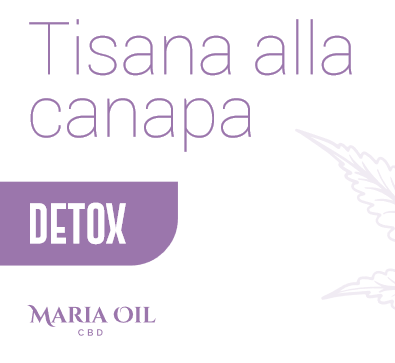 CBD Detox Herbal Tea£12.99
CBD Detox Herbal Tea£12.99 -
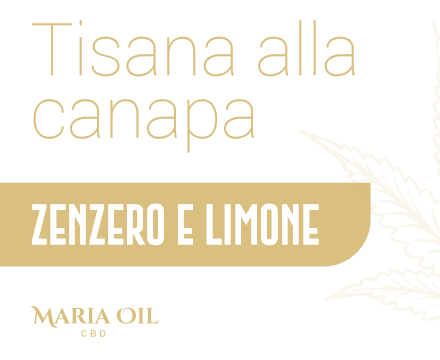 CBD Ginger and Lemon Herbal Tea£12.99
CBD Ginger and Lemon Herbal Tea£12.99 -
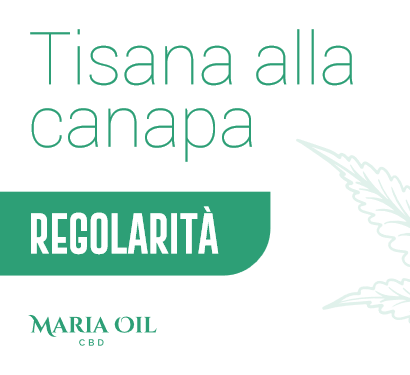 CBD Herbal Tea Fatigue£12.99
CBD Herbal Tea Fatigue£12.99 -
 CBD herbal tea for sleep£12.99
CBD herbal tea for sleep£12.99
The benefits of a hot drink with CBD
Hot drinks in general have several health benefits, both physical and mental. These are then enhanced by the presence of CBD.
Physical benefits include:
- Hydration: hot drinks such as water, tea and herbal teas help to keep the body hydrated, even in summer;
- Digestion: they can improve digestion and reduce nausea;
- Endorphin release: increases the release of endorphins, chemicals that have beneficial effects on the body and mind.
The mental benefits are:
- Improved mood: taking a break from the day helps the mood and fights depression;
- Increased concentration: memory is also helped, especially by herbs such as CBD;
- Stress release: hot drinks help release stress and anxiety, contributing to improved sleep quality.
These benefits are in addition to the CBD benefits we listed earlier. Cannabis is indeed able to enhance the release of endorphins as well as improve mood due to its action on the endocannabinoid system. This system is in fact involved in the regulation of many physiological functions including mood, memory, sleep, appetite and many others.
Thus, hemp herbal tea has amplified benefits compared to herbal teas containing more traditional herbs.
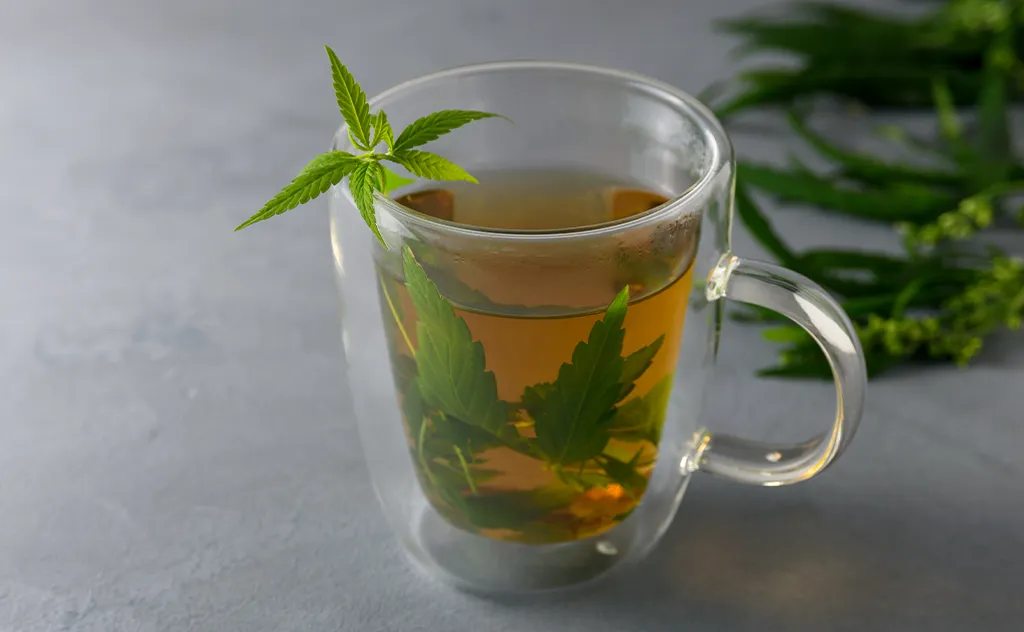
What are the contraindications and side effects of CBD?
As we wondered at the beginning, does hemp herbal tea have contraindications? Generally, CBD is considered safe for most people, unlike THC. However, there are a few considerations you should make before incorporating this remedy into your routine.
Some mild side effects also emerged during laboratory research, which mostly resolved on their own, and almost always through interaction with other drugs. Contraindications may be dry mouth, tiredness, drowsiness, nausea, diarrhoea, and changes in appetite.
What is the most prominent side effect of cannabidiol? In rare cases, allergic reactions and kidney problems may also occur.
To reduce the risk of side effects, it is important to start with a low dose and increase it gradually until the desired effect is achieved.
It should also be mentioned that hemp herbal tea is one of the CBD products with the fewest contraindications because the THC percentage is so low as to be negligible.
Who cannot take CBD?
Although CBD is generally considered safe and well tolerated, there are certain categories of people who should avoid or limit the use of CBD or consult a doctor before using it.
Here are some of the situations in which the use of CBD may not be appropriate:
- Pregnant or lactating women: There are insufficient studies to establish the safety of CBD in pregnancy and lactation;
- Children and adolescents: the developing brain appears to react differently to cannabinoids, including CBD;
- People with liver problems: as CBD metabolism takes place mainly in the liver;
- Drug interactions: CBD may interact with some drugs metabolised by the liver, affecting their levels in the blood;
- People with a history of allergic reactions to CBD: although allergic reactions to CBD are rare, anyone who has had an allergic reaction in the past should avoid CBD or consult an allergist;
- Those suffering from psychiatric disorders: people with situations such as schizophrenia or bipolar disorder;
- Anyone concerned about potential side effects or adverse reactions: the mind is very powerful and could influence the response to the product.
So, if you suffer from any particular medical condition or are undergoing pharmacological treatment, always remember to consult your doctor to minimise the likelihood of contraindications.
What does CBD do to the brain?
CBD interacts with the endocannabinoid receptors that make up the endocannabinoid system, specifically the CB1 and CB2 receptors. CB1 receptors are mainly found in the central nervous system, while CB2 receptors are found in the peripheral nervous system.
CBD can modulate SEC activity in several ways, including:
- Activation of cannabinoid receptors: CBD activates receptors that are involved in a number of brain functions;
- Inhibition of degradation of endogenous cannabinoids: CBD can act on endogenous cannabinoids such as anandamide, which have similar effects to CBD;
- Inhibition of pro-inflammatory COX-2 synthesis: pro-inflammatory COX-2 may be helpful in relieving pain and inflammation.
Some of the specific effects of CBD on the brain include:
- Reduction of neuronal arousal: can be useful for treating conditions such as anxiety and epilepsy;
- Increased neurogenesis: can promote the growth of new brain cells, useful for treating conditions such as dementia and Alzheimer’s disease;
- Protecting brain cells from damage: CBD has antioxidant and anti-inflammatory properties, which can protect brain cells from damage caused by free radicals and inflammation.
As you can see, hemp herbal tea works in a total and complete way on the body, producing both effects on the body and the brain.
Hemp herbal teas for specific needs
In conclusion, you don’t have to worry so much about the contraindications of hemp herbal tea, rather focus on the fact that it is a natural solution to meet specific needs.
Hemp is an extraordinary plant, rich in cannabinoids that have been shown to have numerous positive effects on human health. The hemp infusions offered by Maria CBD Oil are one of the most enjoyable and accessible ways to experience the benefits of hemp in a legal and safe way.
If you are interested in finding out more about our herbal teas and how they can contribute to your well-being, we invite you to visit our online shop. There you will find a wide range of options to choose from, each carefully prepared to ensure maximum quality and potency. Choose nature, choose wellness, choose Maria CBD Oil.
 Contact us
Contact us 






